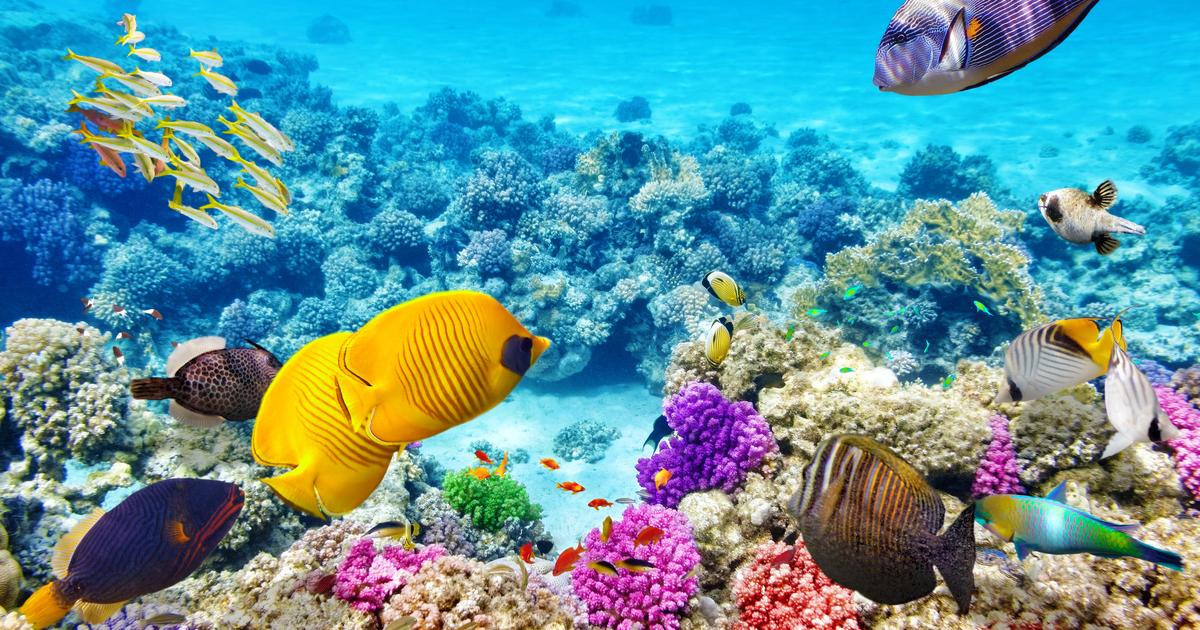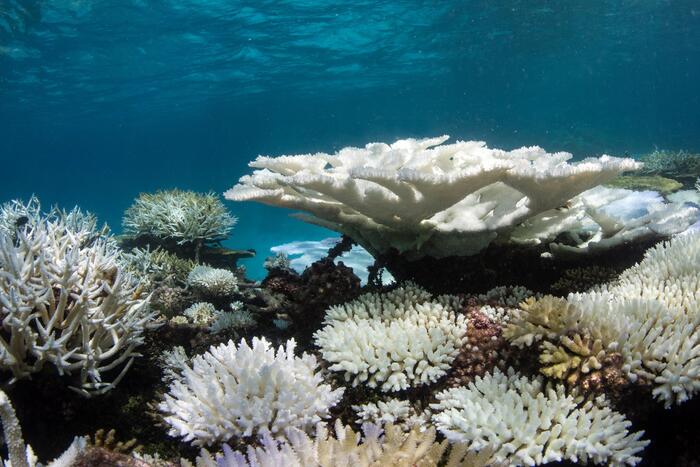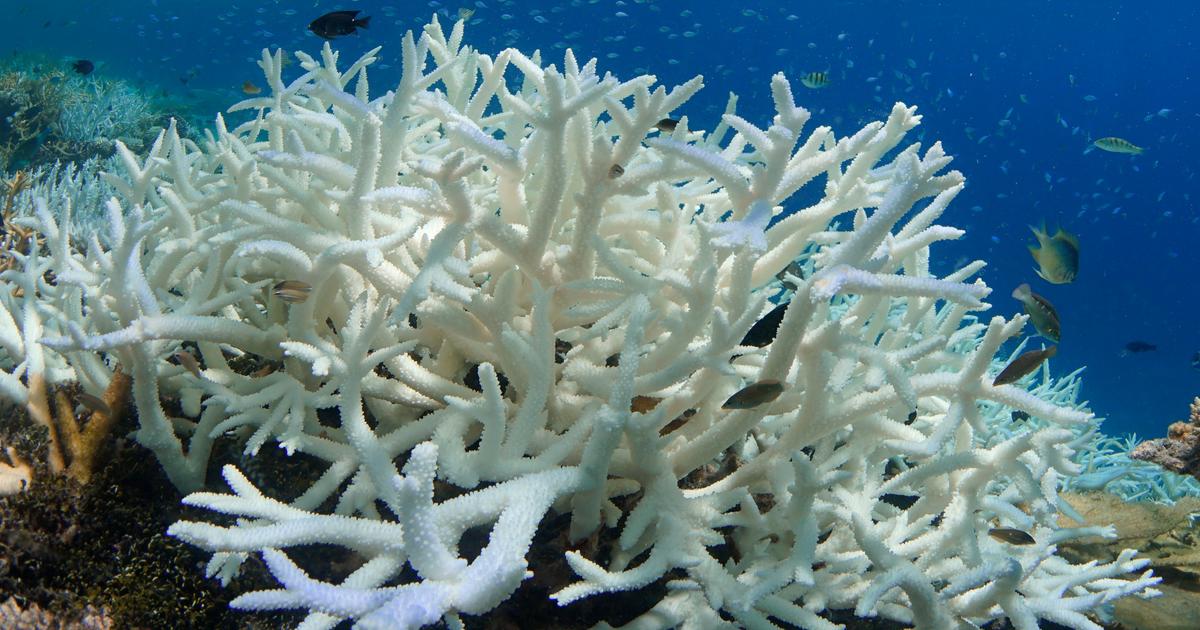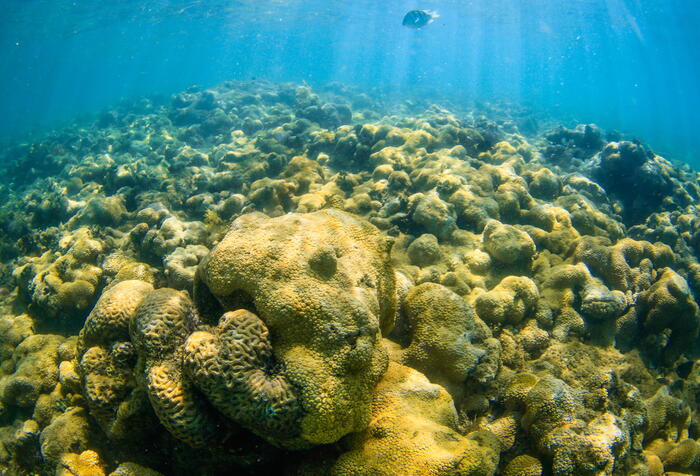Icon: enlarge
Coral bleaching in French Polynesia in 2019
Photo: Alexis Rosenfeld / Getty Images
What exactly happens with coral bleaching?
Researchers call coral bleaching the fading of the colorful tropical coral reefs.
One of the best known is the Australian Great Barrier Reef, which has been warned against creeping destruction by climate change for years.
Tropical corals form a vital symbiosis with unicellular algae.
These live in the tissue of the coral and produce carbohydrates through photosynthesis with which they supply the coral.
They also give the coral its splendid color.
In return, the coral offers the algae a protected habitat and provides them with nutrients.
The ideal water temperature for this symbiosis is between 20 and 30 degrees Celsius.
If it is above this value for a long time, this leads to a state of stress in the algae, the so-called heat stress.
They stop producing carbohydrates and are then repelled by the coral.
The result is malnutrition in the corals.
If new algae do not settle within a few weeks or months, the coral will die.
Without algae, the tropical corals cannot survive in the long term.
How does climate change affect the condition of coral reefs?
Global warming and the resulting rise in water temperatures represent a major threat to coral reefs and the living organisms that live there. The effects of climate change on this ecosystem can already be clearly seen on the Great Barrier Reef off the northeast coast of Australia.
Of the almost 350,000 square kilometers of coral reefs, around 43 percent were affected by coral bleaching in 1998, and around 85 percent in 2016.
Whereby lightly or moderately bleached corals can also recover.
However, this takes time.
The hot Australian summer of 2019/20 hit the Great Barrier Reef again, and in March of this year, large areas were already affected by coral bleaching.
A special report by the Intergovernmental Panel on Climate Change from 2018 warns that 70 to 90 percent of the world's coral reefs will die if the global temperature increases by an average of 1.5 degrees Celsius compared to pre-industrial levels.
According to the researchers, if the temperature rises by 2 degrees, the reefs are almost completely dead.
With their death, the habitat of numerous other marine life is also destroyed.
Last week's climate term: albedo









